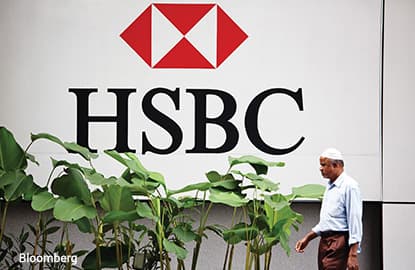
This article first appeared in The Edge Financial Daily, on June 30, 2016.
KUALA LUMPUR: Investors, who are hoarding cash now, will have to contend with a low-growth, low-yield landscape, as things are not looking any brighter going forward after world markets were rattled by the Brexit vote last week, according to HSBC Global Asset Management.
In a briefing yesterday on the outlook for global asset classes this year, the firm’s multi asset and wealth chief investment officer Denis Gould said investors are operating in a “fragile equilibrium”, where global growth is patchy, uneven and lacklustre, while interest rates are kept low with no signs of increasing soon, as government bond yields remain depressed.
“Market volatility spiked in the first quarter, driven by growth worries. But it was a ‘phantom recession’ as fundamentals did not deteriorate as much as sentiment. [Still,] it was a reminder that global growth is not in a robust place,” he said during a conference call organised by HSBC Global Asset Management.
“It is not a strong, growing, robust world, so growth expectations are fragile. Stabilising sentiment requires policymakers to take a stance that they would not act in an adverse way, which is why we’ve got this ‘lower for even longer’ interest rate scenario.
“If you could characterise the interest rates forecast — they’re lower for even longer — and with the UK referendum, it seems to be lower forever until further notice,” he added.
At the same time, bond yields have stayed at really low levels too, even as equities and credit recovered. “It is really becoming a problem,” he added.
Asset classes across the world were shaken in the first quarter as the world grappled with manufacturing slowdown, lower oil prices and China’s yuan devaluation. Following UK’s decision to leave the European Union and continued uncertainties over whether the US will be raising interest rates, Gould said volatility across asset classes will remain elevated over the coming months.
As such, he said investors will continue to see low interest rates and the asset management firm does not see Japanese and European rates rising anytime soon either.
“Global growth is still going to be lacklustre and I don’t see the global growth entering a major boost anytime soon,” he said.
“Inflation numbers will probably pick up as we go through the next few months as oil prices are now up 30% year to date,” he added.
He said data collated by HSBC Global Asset Management show that undervalued asset classes include emerging market equity, Asia ex-Japan equities, emerging market debts, US and global high-yield bonds and European asset-backed securities.
Overvalued assets, which he said are characterised as “extremely poor value, not rewarding you for the risk you are taking” include government bond asset classes such as those from Germany, Japan, the UK and the US.
“Government bond yields are so low now; they offer very little protection. They are all risk and no reward. They could be a risk if people start to rethink monetary policies; yields could go significantly higher so that is where I see the new danger: in these really low government bond yields around the world,” he said.
“So the clear message here of how you position for the long term is take on some credit risk. Take on some equity risk and underweight your core government bonds,” he added.